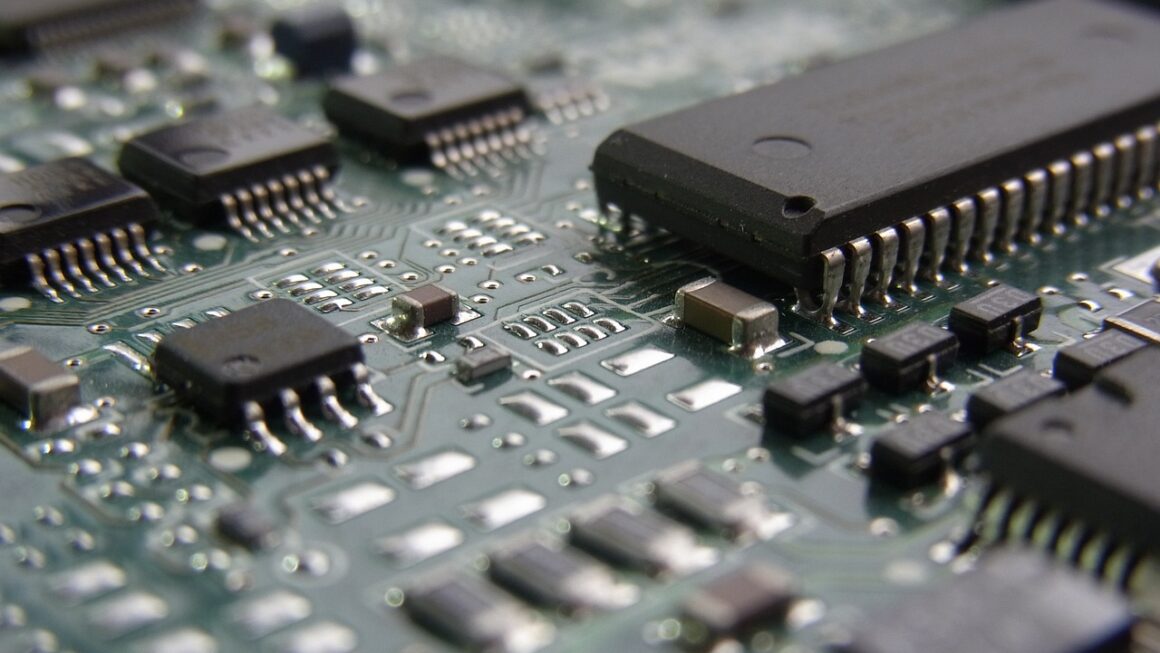The evolution of mobile technology has reshaped our world, transitioning from bulky devices designed solely for calls to powerful, pocket-sized computers capable of handling virtually any task. From communication and entertainment to education and business, mobile technology has become an indispensable part of modern life. This article delves into the various aspects of mobile technology, exploring its impact, advancements, and future trends.
The Pervasive Impact of Mobile Technology
Communication Revolution
Mobile phones have undeniably revolutionized communication. The ability to connect with anyone, anywhere, at any time has transformed personal relationships and business operations alike.
For more details, visit Wikipedia.
- Instant Messaging: Platforms like WhatsApp, Telegram, and Signal offer instant messaging, voice calls, and video conferencing, providing a seamless communication experience.
- Social Media: Mobile access to social media platforms such as Facebook, Instagram, and Twitter has facilitated the sharing of information and ideas on a global scale.
- Email on the Go: Mobile email clients enable users to stay connected to their professional and personal inboxes, regardless of their location.
- Example: Businesses utilize mobile communication tools for remote team collaboration, customer support, and efficient project management, leading to improved productivity.
Transforming Industries
Mobile technology has disrupted and transformed numerous industries, creating new opportunities and business models.
- Healthcare: Mobile health (mHealth) apps allow patients to monitor their health metrics, schedule appointments, and consult with doctors remotely. Telemedicine, facilitated by mobile technology, expands access to healthcare services in underserved areas.
- Education: Mobile learning (mLearning) apps and platforms offer accessible and engaging educational content. Students can access online courses, libraries, and study materials on their mobile devices.
- Retail: Mobile commerce (mCommerce) has enabled customers to shop online anytime, anywhere. Retailers utilize mobile apps for marketing, promotions, and personalized customer experiences.
- Finance: Mobile banking apps offer convenient access to banking services, allowing users to manage their accounts, transfer funds, and pay bills from their smartphones. Mobile payment solutions like Apple Pay and Google Pay have streamlined the payment process.
- Statistics: According to Statista, mobile commerce sales are projected to reach over $620 billion in the U.S. alone by 2024, demonstrating the rapid growth of mobile shopping.
Key Advancements in Mobile Technology
Smartphone Evolution
Smartphones have become increasingly sophisticated, integrating advanced hardware and software technologies.
- Enhanced Processing Power: Mobile processors have significantly improved in performance, enabling smartphones to handle complex tasks such as gaming, video editing, and augmented reality (AR) applications.
- High-Resolution Displays: Smartphone displays have evolved from low-resolution screens to vibrant, high-resolution displays with features like OLED and AMOLED technology, offering immersive visual experiences.
- Advanced Camera Systems: Mobile camera systems have become increasingly advanced, featuring multiple lenses, optical image stabilization (OIS), and artificial intelligence (AI) enhancements for capturing high-quality photos and videos.
- Improved Battery Life: Battery technology has improved, allowing smartphones to last longer on a single charge. Fast charging and wireless charging technologies have also become common features.
Mobile Operating Systems
Mobile operating systems like Android and iOS provide the software foundation for smartphones and tablets.
- Android: Developed by Google, Android is the most widely used mobile operating system globally, offering a vast ecosystem of apps and customization options.
- iOS: Developed by Apple, iOS is known for its user-friendly interface, security features, and seamless integration with Apple’s hardware and services.
- App Development: Mobile app development platforms and tools have made it easier for developers to create innovative apps for various purposes, driving the growth of the mobile app economy.
- Example: The introduction of foldable phone technology heavily relies on how well the mobile OS can adapt to the changing screen sizes and aspect ratios. Android has made significant strides to support this technology effectively.
Mobile Networks and Connectivity
Mobile networks have evolved significantly, providing faster and more reliable connectivity.
- 4G LTE: 4G LTE networks have become the standard for mobile connectivity, offering faster data speeds and lower latency compared to previous generations.
- 5G Technology: 5G technology is the next generation of mobile networks, offering significantly faster data speeds, lower latency, and greater network capacity. 5G enables new applications such as autonomous vehicles, smart cities, and enhanced AR/VR experiences.
- Wi-Fi Connectivity: Wi-Fi networks provide wireless internet access in homes, offices, and public spaces, supplementing mobile network coverage.
- Impact of 5G: With its ultra-low latency, 5G is poised to revolutionize industries like gaming and remote surgery where instantaneous feedback is crucial.
Mobile Security and Privacy
Protecting Mobile Devices and Data
Mobile security is crucial to protect devices and data from cyber threats and unauthorized access.
- Strong Passwords and Biometrics: Using strong passwords and biometric authentication methods such as fingerprint scanners and facial recognition adds an extra layer of security to mobile devices.
- Software Updates: Keeping mobile operating systems and apps up to date is essential to patch security vulnerabilities and protect against malware.
- Mobile Security Apps: Mobile security apps offer features such as antivirus scanning, anti-theft protection, and privacy monitoring.
- VPNs: Using Virtual Private Networks (VPNs) can help encrypt internet traffic and protect sensitive data from being intercepted on public Wi-Fi networks.
- Example: Enabling two-factor authentication (2FA) for important accounts adds an extra layer of security, requiring a verification code in addition to a password.
Privacy Considerations
Mobile users should be aware of privacy risks associated with mobile apps and services.
- App Permissions: Review app permissions carefully before granting access to sensitive data such as location, contacts, and camera.
- Privacy Settings: Adjust privacy settings on mobile devices and apps to control data sharing and limit tracking.
- Data Encryption: Encrypting data on mobile devices can help protect sensitive information in case of loss or theft.
- Awareness is Key: Understanding the privacy policies of apps and services can help users make informed decisions about data sharing.
- Practical Tip: Regularly check the privacy settings of your social media apps to control who can see your posts and personal information.
The Future of Mobile Technology
Emerging Trends
Several emerging trends are shaping the future of mobile technology.
- Foldable Devices: Foldable smartphones and tablets offer larger screen real estate in a compact form factor, providing a more versatile mobile experience.
- Artificial Intelligence (AI): AI is being integrated into mobile devices to enhance features such as voice assistants, camera capabilities, and personalized recommendations.
- Augmented Reality (AR) and Virtual Reality (VR): AR and VR technologies are creating immersive mobile experiences, enabling new applications in gaming, education, and entertainment.
- Wearable Technology: Wearable devices such as smartwatches and fitness trackers are becoming increasingly popular, providing health monitoring, notifications, and other convenient features.
- Example: AR apps that allow users to virtually try on clothes or visualize furniture in their homes are gaining traction, transforming the shopping experience.
The Internet of Things (IoT)
Mobile technology plays a crucial role in the Internet of Things (IoT), connecting devices and enabling remote control and automation.
- Smart Home Devices: Mobile apps allow users to control smart home devices such as lights, thermostats, and security cameras from their smartphones.
- Wearable Sensors: Wearable sensors collect health and fitness data, providing insights into user activity and sleep patterns.
- Connected Cars: Mobile apps enable remote monitoring and control of connected cars, providing features such as remote start, vehicle tracking, and diagnostics.
- Industrial IoT: Mobile technology is used in industrial settings to monitor equipment, track assets, and improve efficiency.
Conclusion
Mobile technology has come a long way, and its impact on our lives is undeniable. As technology continues to evolve, we can expect even more innovative mobile solutions that enhance communication, productivity, and entertainment. Staying informed about the latest advancements and best practices in mobile security and privacy is crucial to maximizing the benefits of mobile technology while mitigating potential risks. By embracing the power of mobile technology, we can unlock new opportunities and shape a connected future.
Read our previous article: Team Chat Evolved: Fostering Inclusion And Innovation




